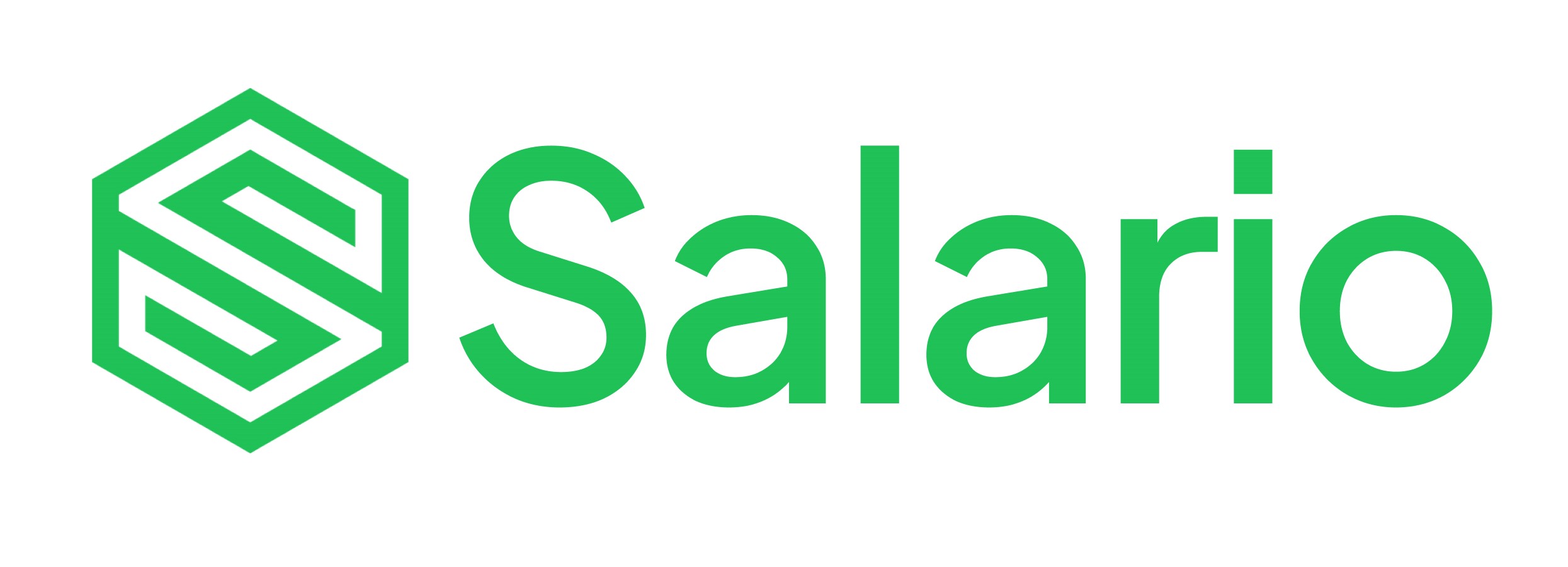
Before we dive into what earned wages are, take a moment and imagine you received your salary on the 27th of the month, not too late, not too early, and while your salary is not a pittance, you are not particularly wealthy. In fact, you just have enough to get by and a little extra. Suddenly, something unforeseen happens on the 7th of the new month: your gas cylinder gets bad, while your house pump spoils, or you have to pay the school fees of a sibling that just resumed school. Regardless of the event, the effect is that your savings and any extra income are wiped. How do you survive the coming month?
In Nigeria, most banks, lending institutions, cooperative societies, and loan apps offer loans; however, the interest on such loans can be exorbitant. Obtaining funds for emergencies can be quite challenging in a nation where over 70 million people are employed and receive their salaries only once a month. This challenge is further exacerbated by the fact that many Nigerians earn relatively little. In emergencies, such as the case above, foreign countries like the US offer options like pawn loans and overdrafts. Many new fintech companies are beginning to provide solutions to address this issue, and that’s where earned wage access comes in.
What is Earned Wage Access?
Earned Wage Access (EWA) is a system that allows employees access to money already earned in their payroll cycle. Simply put, if Miss Taiwo earns three hundred thousand naira per month, has an earned wage access system or benefit in place, and needs money on the 10th of the month, the system calculates and pays out her daily earnings up until the 10th of the month, deducting this payout from her total monthly salary at the end of the month. With this system, she receives part of her salary before the month ends and does not have to rely on a loan facility to finance her immediate needs.

Earned-wage access is also known as instant payroll or on-demand pay.
The idea behind earned payroll is that your employer partners with a fintech system that provides EWA benefits. In Nigeria, a payroll system such as Salario or Salad is a viable option that provides EWA benefits. In this partnership, the payroll software company and your employer establish an arrangement that enables the payroll system to provide you with EWA benefits, albeit at a small processing fee. The inner workings of these details lie between your employer and the payroll company. Still, the general arrangement allows employees access to up to half their salaries before the month ends.
How do you get to benefit from earned wage access plans?
Getting earned wage access is usually a straightforward process involving the company you work for, the payroll software company, and you, the employee.
- Step 1: Partnership between your employer and the company providing EWA services. There has to be a prior arrangement between your employers and the EWA provider. This works better if the EWA provider is a payroll system your company uses to pay its staff. That way, they can process your salary and pay you when you request without needing to chase you when it’s time to pay your salary. The terms of this arrangement can vary, such as the amount you can request through earned wage access or who is responsible for any withdrawal or processing charges associated with the earned wage access benefit.
- Step 2: Employee enrollment. Employees must also be on the system. This could be done by a general onboarding session by the employers or individually.
- Step 3: Employee fund availability. When employees log into their accounts, they can check how much of their salary is available over time.
- Step 4: Payment request. An employee can request pay when they have enough to withdraw. The withdrawable amount depends on the arrangement between the employers and the EWA provider.
What are the advantages of earned wage access?
There are a lot of advantages that come with earned wage access as a work benefit for businesses and employees alike.

For Businesses.
1. Increases the chances of attracting top talent.
Many employees value timely pay as a perk of work. Providing EWA benefits increases the chances of getting great hands at your business.
2. Improved employee retention and satisfaction.
Do you already have great hands working at your company? EWA can boost morale and help increase overall efficiency, increasing the chances that employees will enjoy their work and stay with you longer.
3. Reduces the rate of absence.
When employees know that each day counts at their workplaces and that they can get paid even before the end of the month, absenteeism is reduced.
4. No payroll disruption.
Because most EWA solutions are handled by external companies that also likely handle the business’s payroll, there is a reduced risk of payroll disruptions. Your business does not have to hurt its head servicing employee EWA requests, as the payroll option handles this.
For employees.
1. Increased financial flexibility.
Employees don’t have to be taken by surprise when bills arrive. They may access their salary when they earn it with EWA, so they’re not tied to any plans or loans that could negatively impact their finances.
2. Enhanced Monetary Security
Employees can avoid high-interest loans, overdraft fees, and late payment penalties by using EWA to better manage their financial flow.
3. Reduced financial stress
The mental health of employees is vital to their performance. When you have access to parts of your pay before the month ends, you can easily take off the stress of financial burdens and focus on good work.
4. Improved finance monitoring.
An excellent payroll solution like Salario provides payslips for each transaction and allows employees to monitor their finances better when using instant payroll services.
Are there disadvantages to consider?
While there are great benefits to adopting EWA, there are possible disadvantages too for businesses and employees.
For businesses
1. Administrative Complicity
Although many EWA solutions work perfectly with payroll systems, some companies may find that running EWA services involves more administrative work.
2. Potential Consumption
Early access to income may cause employees to grow overly dependent on it, which would cause financial instability and maybe influence their performance at work.
3. Cost
Businesses could have to pay for integrating EWA systems or giving staff members subsidies so they may access their pay early. Businesses on a tight budget may find these expenses problematic.
For employees
1. Over-reliance
Employees who withdraw their income too often risk becoming overly reliant on EWA, which might cause them to mismanage their finances and leave them short when their full paycheck comes.
2. Possible Fees
If employees utilize certain EWA services regularly, the fees for early wage access can add up and become a financial hardship.
3. Disadvantaged cash-based economies
Employees in regions where cash-based economies are still prevalent may encounter challenges in obtaining their earned salaries due to a lack of digital banking infrastructure or cell phones.
What barriers prevent the widespread adoption of this system in Africa?
Although earned wage access provides many benefits to both employers and employees, it is not common across Africa in general and Nigeria in particular. This is because there are existing barriers across the continent. Some of these barriers are scalable, while others will take some time to overcome.
Limited or nonexistent financial framework.
While there has been an increase in tech startups and revolutionary financial innovations in Africa, these developments are not as widespread as we think. Often, they are restricted to city hubs and urban centers, leaving a large percentage of national populations without access to the technological frameworks that allow them to enjoy EWA. More rural outreaches and national sensitization are a way forward in this regard.
Limited knowledge of personal finance and technology.
Beyond the absence of technological frameworks, there is also a knowledge gap. Many potential users are either unaware of the option of instant payroll or are unaware of the availability of technology solutions. Financial literacy is also a hindrance because those without the requisite financial knowledge can run businesses into the ground in trying to execute instant payroll options.
Trust and awareness
Earned Wage Acces is a relatively new concept in the African financial landscape and will be greeted with skepticism. This is further heightened because of the damage already done by loan options already on the ground. It would require time and results overtime to gain the trust of skeptics.
Absence of regulatory frameworks
Many African nations lack a defined legislative structure controlling EWA, which would raise questions regarding the legality, compliance, and protection of employees and businesses. With widespread adoption and proper positioning by industry leaders, there will be requisite legal frameworks to govern earned wage access in the future.
In Conclusion.
To sum up, earned wage access provides a safety net for many employees who encounter unforeseen financial difficulties, substituting for expensive loans and financial stress. Employers find it an effective solution that increases productivity and retention while enhancing employee morale. Of course, like with any financial service, it’s crucial to weigh the advantages against any potential disadvantages to make sure it’s the best choice for you or your company.
Salario is a fantastic choice if you’re looking for a reliable way to easily experience financial flexibility for yourself or your staff. Thanks to its user-friendly platform and simple connection to payroll systems, it offers all the benefits of earned wage access without the fuss. Find out more at Salario.
